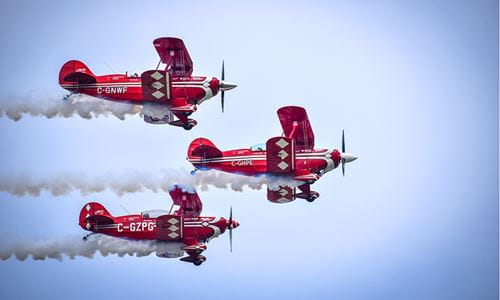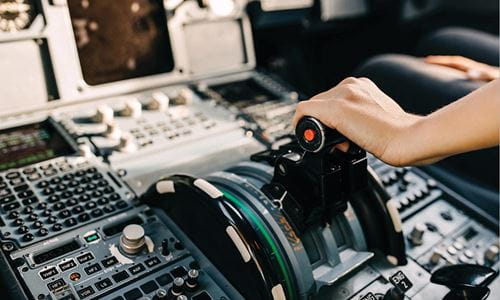
ALPA Calls on FAA to Reject Attempts to Delay Critical Flight Deck Security Measures
WASHINGTON—The Air Line Pilots Association, Int’l (ALPA) today urged the Federal Aviation Administration (FAA) to immediately deny Airlines for America’s petition seeking a two-year delay in implementing mandatory flight deck secondary barriers.
"As we approach the 24th anniversary of 9/11, it is imperative that we continue to honor those lost by implementing a critical aviation security regulation designed to prevent a repeat of that fateful day," said Jason Ambrosi, ALPA president. "ALPA has long advocated for secondary flight deck barriers, which are designed to prevent a breach by those who seek to do harm, and we were proud to lead the charge to get the legislation passed and ultimately the rule finalized by the FAA."
The petition requests exemption from regulations requiring Installed Physical Secondary Barriers (IPSB) on newly manufactured aircraft delivered after August 25, 2025. The secondary barriers are designed to eliminate the critical vulnerability that exists when the flight deck door is opened during flight. ALPA strongly disputes the claim that airlines need up to 24 months to develop crew training programs, calling the timeline "grossly exaggerated."
"Airlines have had two years to implement the regulation, yet they are now attempting to further delay this needed aviation security enhancement. We urge the FAA to reject this latest stalling tactic and implement without delay the secondary barrier requirement as Congress mandated," said Ambrosi.
Despite improvements since 9/11, flight deck doors are often still opened during flight, leaving aircraft vulnerable during these transition periods, with flight attendants using beverage carts as the sole line of defense. As current procedures place individual crew members directly between an open flight deck and potential threats, unruly passenger incidents and attempted breaches continue to occur regularly.
"We cannot continue to delay effective and necessary mitigations required by law," added Ambrosi. "Aviation remains a primary target for terrorists who are constantly probing for weaknesses."
Additional Background
The secondary barrier requirement has been over two decades in development:
2002: FAA required reinforced flight deck doors with just 15 months to comply – successfully met
2003: Two major airlines voluntarily installed secondary barriers
2011: Industry developed design guidance through RTCA’s “Aircraft Secondary Barriers and Alternative Flight Deck Security Procedures”
2015: FAA formally acknowledged secondary barriers' effectiveness
2018: Congress mandated secondary barriers in FAA Reauthorization Act
2023: FAA issued final rule with August 2025 implementation date
-###-
CONTACT: ALPA Media, 703-481-4440 or Media@alpa.org












